After seven weeks of relentless bombardment that left 80 percent of Gaza's population - 1.8 million people - displaced, trapped and acutely hungry, a week-long humanitarian pause came into effect offering a temporary respite and allowing some aid into the small, decimated and fully-deprived enclave where food, water, medicine and any of life's necessities are dangerously low.
Hind, a native of Gaza, has made it her life's mission to share the stories of her people. In this account, she bears witness to the suffering befalling Gaza and how she and others are surviving. For weeks, Hind reported on life in Gaza. Below, she shares her story of displacement, the loss of her home, days without food, losing hope and finding it again.
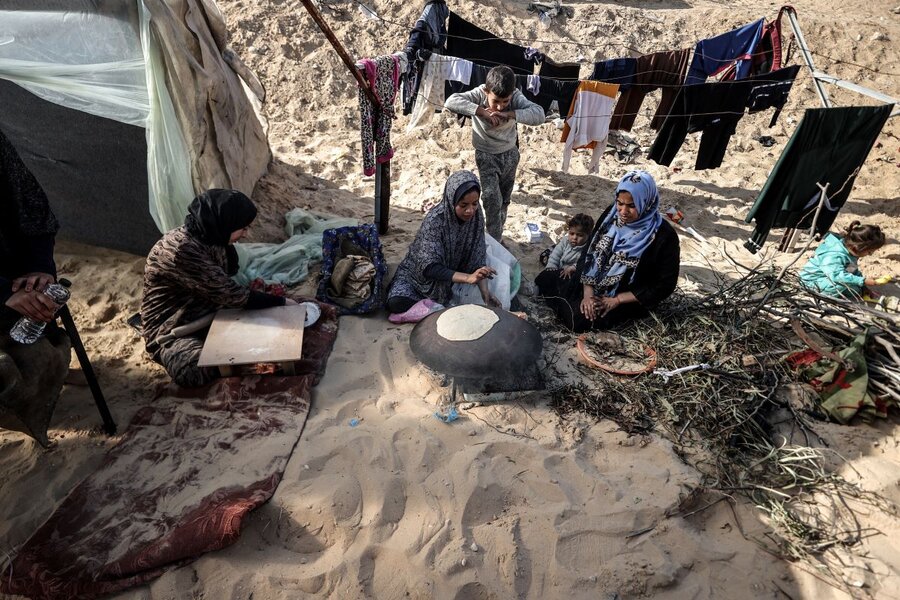
24 November
I woke up today to an unfamiliar silence. The absence of warplanes, drones and bombs. The uncertainty that it would last felt uneasy.
On the first day of the temporary pause, our footsteps led us to the Al Aqsa Martyrs hospital, where ambulances were transporting civilians wounded by gunshots on a road that was supposed to be safe. "We wanted to go back home," a man with an injury in his right leg screamed.
People were shouting, doctors were in a rush trying to save those injured in their lower limbs from amputation. The hospital's floors, once pristine, were now painted in the shades of spilled blood. As I looked around at the blood-soaked ground, I couldn't help but question, "Where is the ceasefire?"
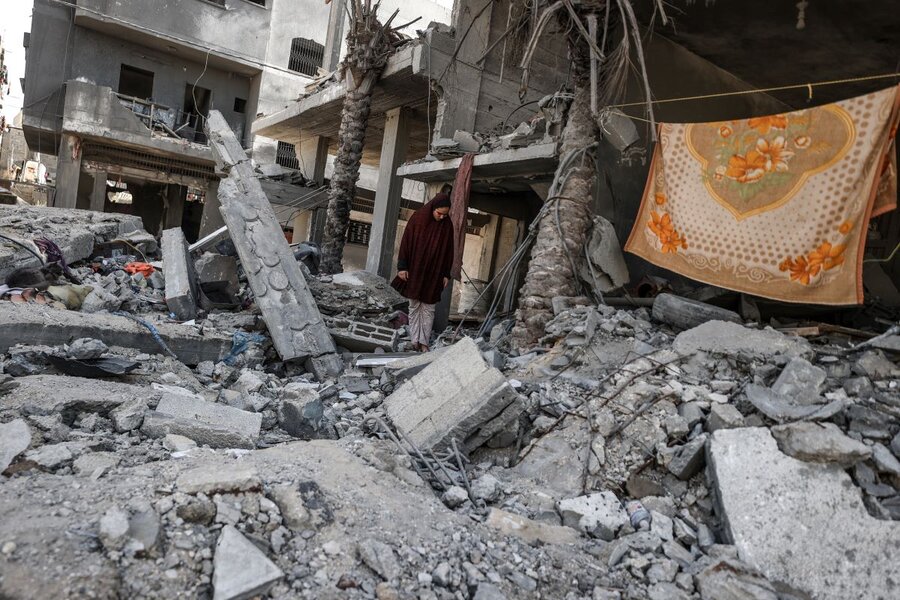
On that day at least 17 Palestinians were injured. Yet, as the day unfolded, an unsettling normalcy settled in - a silence that didn't seem to care for the ruthless acts that left dozens of Palestinians dead or injured on the supposed respite's very first day.
In the midst of the heart-wrenching scenes, I decided to seek solace at the shore of Gaza, yearning for the calm sight of the sea and the soothing rhythm of the waves. The shore that I had been a stranger to for six weeks. Barefoot on the sand, I took a deep breath. All I hope for is an end to the violence.
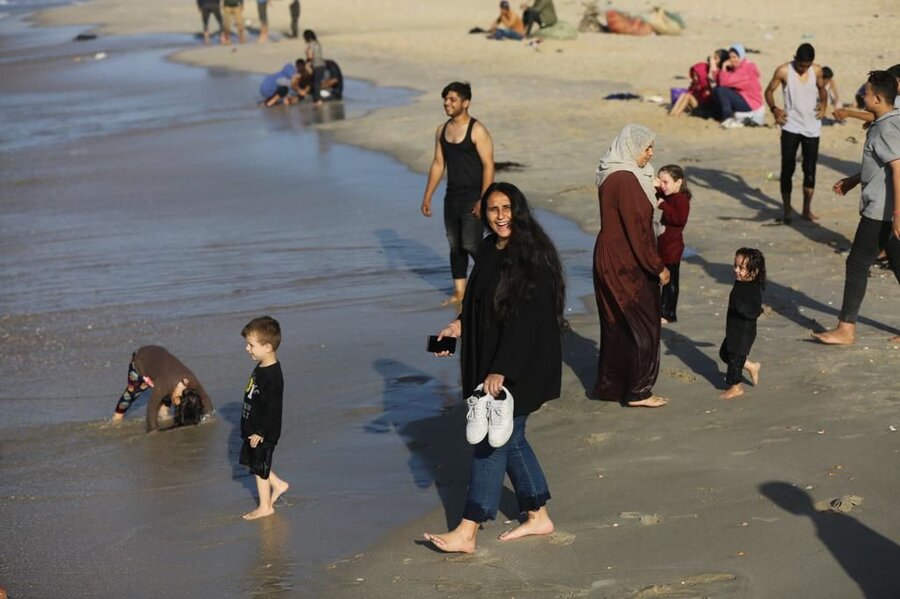
Children were swimming in the sea, laughing and playing - seemingly oblivious to the war. Gazans used to gather at the sea for picnics with friends and family, but today there were none. The absence of any food underscored the stark contrast between the ordinary joys of life and the grim reality of conflict.
25 November
The humanitarian pause agreement was meant to allow aid into the Gaza Strip. And yet, the supermarket shelves were empty. People were searching for salt, yeast and wheat flour to make bread. Everyone was desperately searching for ways to bring bread back into their lives, in supermarkets or on the streets - but no one can find.
A sign stapled on a supermarket entrance read: "WE DO NOT HAVE YEAST OR SALT".
We went to Deir El Balah's marketplace searching for food, but we could not find any. Tomatoes, cucumbers, onions, eggplant and oranges are all you can find. We even searched for winter clothes and blankets; we also did not find any.
If some supermarkets had anything at all on their shelves, it was soap and shampoo.
People are still going to shops, navigating aisles in the hope of finding anything they can return with to their children yearning for sweets. But how do you soothe a child crying for chocolate when you cannot even make them bread?
There is not enough food or aid reaching all of the people in the Gaza Strip.
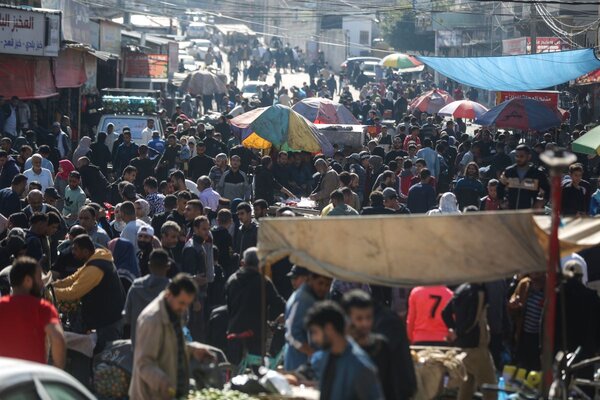
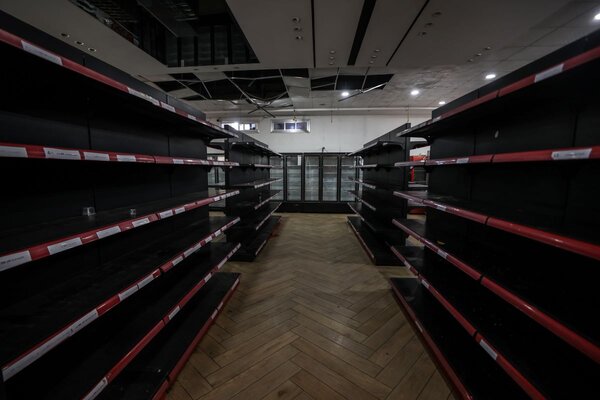
6:00 pm:
I found out my home was bombed from a video shared by someone on Instagram. I am still in denial. I won't believe it until I see it with my own eyes. But I can't.
Home is a couple of minutes away, but I cannot even go search for my belongings because people are restricted from going there. Gaza has been a besieged enclave since 2007 and Palestinians have had to deal with the lack of freedom in moving within the Strip or leaving it.
A temporary ceasefire without going back home was cruel. It is not only me. "Can we go back to our homes?", is the only question everyone is asking. Not being able to go back home made me sad and depressed.
But not being able to mobilize from the north to the south of Gaza has been suffocating more than bombardment.






